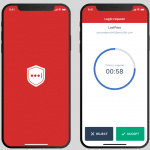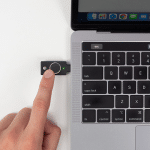Google Workspace gains passkey support

Following on from its adding passkey support to Chrome and Android at the end of last year, Google is continuing to rollout the technology across all its platforms.
The company is now bringing passkeys to Google Workspace. Passkeys offer a convenient and secure passwordless authentication experience across websites and apps, allowing users to sign in with a fingerprint, face recognition, or other screen-lock mechanism across phones, laptops, or desktops.
Consumers remain hesitant about using biometrics

A new survey of 1,000 global consumers shows that 54 percent think digital authentication methods such as biometrics are revolutionizing the customer experience when it comes to online transactions and payments.
However, the study from Incode Technologies, also reveals that 48 percent of respondents do not see digital authentication as contributing to trust in the online world. This is due to concerns about fraud protections, privacy, and security.
60 percent of organizations have had authentication breaches in the last year

Insecure authentication is a primary cause of cyber breaches and cumbersome login methods take an unacceptable toll on employees and business productivity, according to a new report.
The 2023 State of Passwordless Security Report, released by HYPR and Vanson Bourne, shows that 60 percent of organizations have reported authentication breaches over the last 12 months and that three out of the top four attack vectors are connected to authentication.
ForgeRock launches password-free enterprise identity platform

People have been predicting the end of the password for a very long time, yet they still remain key to securing access to many systems.
Maybe the end is edging just a bit closer though as ForgeRock announces Enterprise Connect Passwordless, a new passwordless authentication solution that eliminates the need for users to interact with passwords inside large organizations.
Zero Trust Authentication aims to boost security

Growing numbers of cyberattacks have highlighted the shortcomings of passwords and legacy multi-factor authentication systems.
Beyond Identity today launches Zero Trust Authentication, which has been developed in response to the failure of traditional authentication methods. It includes components such as Beyond Identity's risk scoring and continuous authentication capabilities to significantly enhance the level of protection offered.
Why the time is right for passwordless authentication [Q&A]

Although the death of passwords has been predicted for a long time, the move to other forms of authentication has until recently been glacially slow.
The shift to remote working driven by the pandemic has increased interest in securing wider networks and that has put passwordless authentication into the spotlight. We spoke to Tom Bridge, principal product manager at JumpCloud, to find out more about the technology and the benefits it offers.
Alternative authentication methods take hold in response to digital dangers

As global problems spill over into the digital realm and hybrid working has taken hold, businesses are increasingly looking beyond the password in order to secure accounts.
The latest Trusted Access Report from Cisco company Duo shows a 50 percent increase in the percentage of accounts allowing WebAuthn passwordless authentication and a fivefold increase in WebAuthn usage since April 2019.
Research reveals weaknesses in five popular web services

New research from Specops Software finds major cybersecurity weaknesses in popular web services including Shopify, Zendesk, Trello, and Stack Overflow.
The study shows several popular business web applications have failed to implement critical password and authentication requirements to protect customers from cybercrime.
How FIDO's approach to authentication reveals a confusion between identity and access

The Fast Identity Online (FIDO) Alliance -- a group of technology companies including Apple, Google and Microsoft -- recently announced its commitment to supporting passwordless authentication across its products. FIDO’s plans have been in place for nearly a decade and work started long ago on a system that lets users log in to their online accounts without a password but instead with a PIN, biometric, iris scan or with voice recognition.
FIDO’s approach is expected to be implemented across Apple, Google and Microsoft platforms later this year and FIDO believes this will provide better protection over legacy multi-factor authentication and better protection against malicious phishing attacks.
LastPass launches passwordless password manager

For a company whose business is to protect passwords, going passwordless might seem a bit self-defeating, but stick with us, because there is method in this madness.
LastPass is announcing that its customers can now access their vault, and all sites stored in it, with a simple and secure passwordless login using the LastPass Authenticator.
Fraudsters better than customers at answering security questions

We're all used to those irritating questions you have to answer when you contact a company: the make of your first car, the town where you were born, the dog's maiden name, etc. But it seems that criminals may actually be better at answering them than we are.
Fraudsters are able to pass knowledge based authentication (KBA) questions 92 percent of the time, based on a national contact center case study, while genuine customers only pass KBA's 46 percent of the time.
Authentication failures lead to lost customers

A new study carried out by the Ponemon Institute and sponsored by passwordless authentication platform company Nok Nok Labs, shows the significant costs to businesses that result from authentication failures and weaknesses.
According to the study, which surveyed 1,007 IT staff, IT security leaders, and line of business leaders, the average business losses across all types of authentication weaknesses range from $39 million to $42 million.
Yubico launches Security Key C NFC

Earlier this month, Yubico released the long-awaited biometric variant of its popular authentication dongle. Called "Yubikey Bio," it is offered with either USB-A or USB-C connectivity and features a fingerprint reader for enhanced security. Very cool.
While the Yubikey Bio looks like a great product, there is one big problem -- the price. You see, it starts at $80, making it too expensive for many consumers and businesses. Thankfully, today, Yubico launches a much more affordable product, albeit without the fancy biometrics.
Yubico YubiKey Bio authentication dongle uses biometrics for added security on Windows, Mac, and Linux

Portable hardware authentication dongles are pretty darn cool -- they can be a great way to secure access to various devices, applications, and services using hardware. Google offers its own Titan security keys, for instance, but the search giant likely isn't the first company that comes to mind for these products. Actually, Yubico is probably the name most associated with authentication dongles.
Believe it or not, Yubico's popular YubiKey devices have not yet been offered with biometric support. Thankfully, this changes today. You see, the all-new YubiKey Bio features a fingerprint reader for an added level of security. Not only must you physically have possession of the YubiKey Bio to use it, but you must prove you are its owner by scanning your finger.
Recent Headlines
Most Commented Stories
BetaNews, your source for breaking tech news, reviews, and in-depth reporting since 1998.
© 1998-2025 BetaNews, Inc. All Rights Reserved. About Us - Privacy Policy - Cookie Policy - Sitemap.